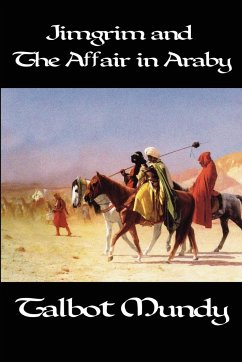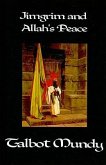Talbot Mundy was an early 20th century English writer who often wrote under the pseudonym Walter Galt. At age 19 he left London to travel to India and parts of the Near and Far East. Most of Mundy's novels are set in India under British Occupation in which the loyal British officers encounter ancient Indian mysticism. The Jim Grim series, which has mystical overtones, ran in Adventure magazine before book's publication. There are 22 books in the series. Major James Schuylet Grim otherwise known as Jimgrim is in Jerusalem. Jerusalem is full of religious factions and different races. With the help of a few amateurs he will try and keep things as calm as possible. There is a disturbed person with a large supply of dynamite ready to destroy an historical place. Can Jimgrim stop this dangerous plot?
Hinweis: Dieser Artikel kann nur an eine deutsche Lieferadresse ausgeliefert werden.
Hinweis: Dieser Artikel kann nur an eine deutsche Lieferadresse ausgeliefert werden.








